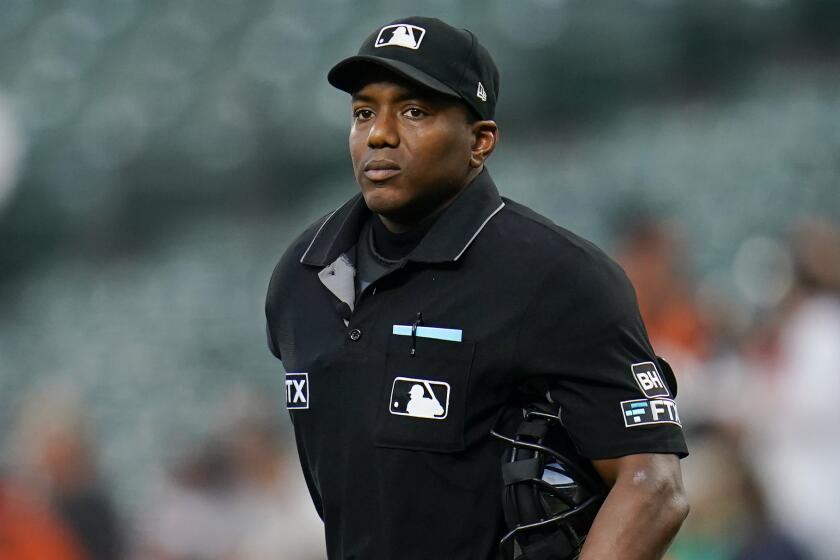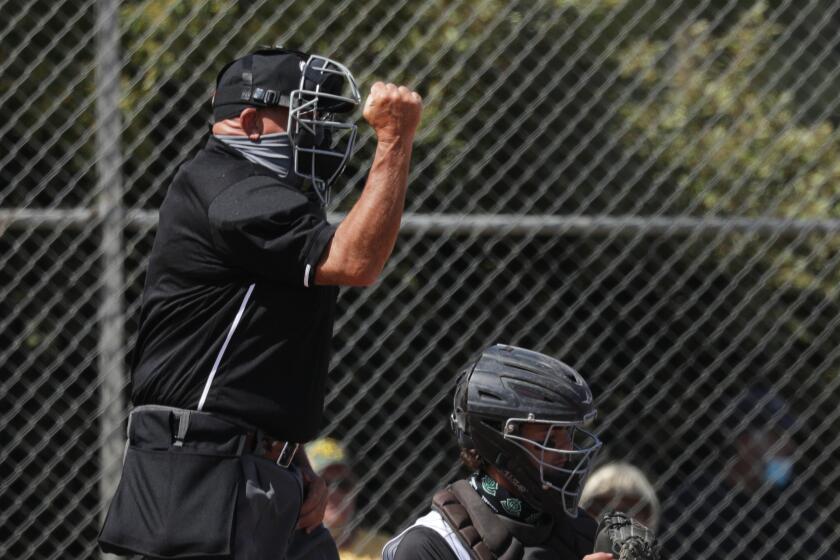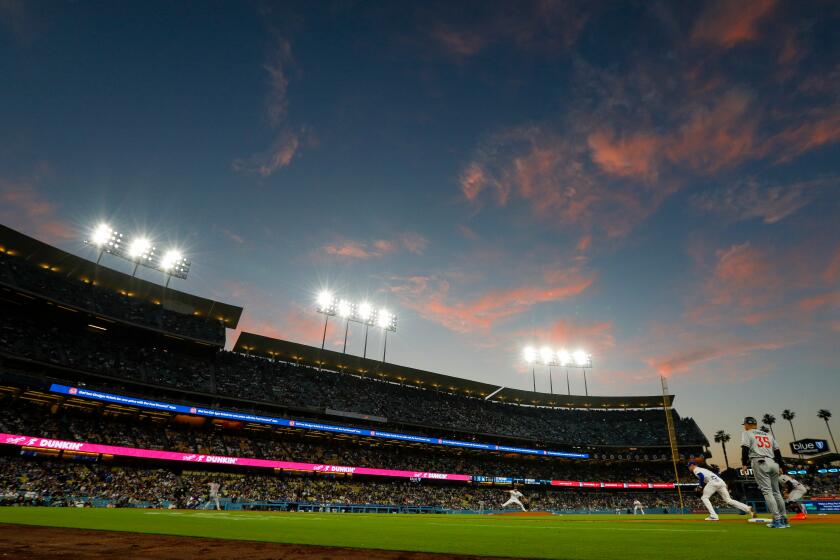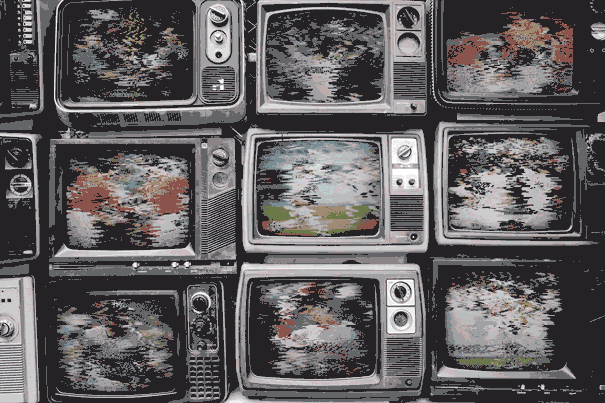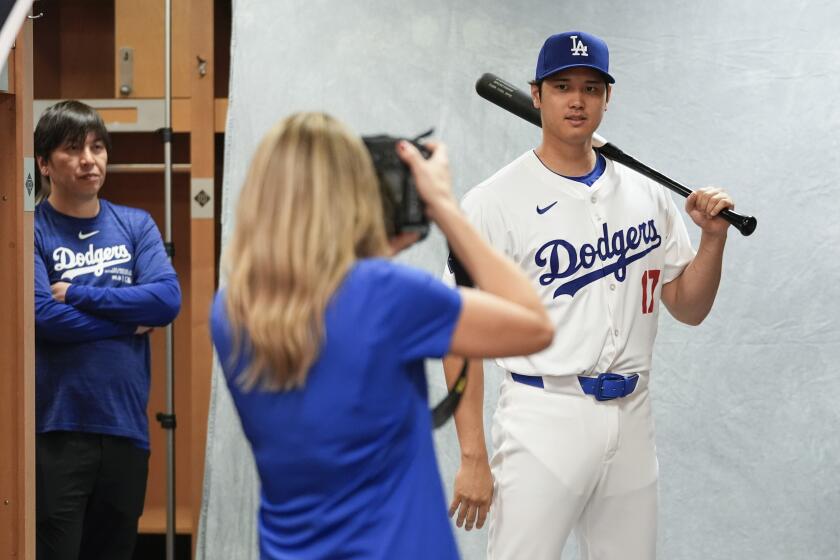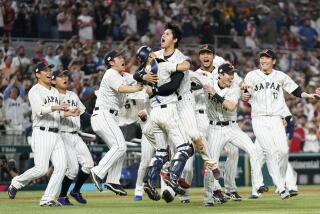Robots calling balls and strikes in MLB? Rob Manfred says ABS system unlikely in 2025

- Share via
Living, breathing human home plate umpires might keep their jobs longer than anticipated.
Rob Manfred touched on several topics at a news conference following an owners meeting Thursday, but the overarching message from the Major League Baseball commissioner was no one is particularly happy with the automated ball-strike (ABS) system currently used in the minor leagues.
And much like the slow integration of the pitch clock, until the ABS is foolproof, it won’t be promoted to the big leagues.
“One thing we did learn with the changes we went through last year, taking the extra time to make sure you have it right is definitely the best approach,” Manfred said. “I think we’re going to use that same approach here.”
How much extra time? Manfred said he doesn’t expect ABS to make its MLB debut until 2026 at the earliest. And he favors a challenge system, not a wholesale replacement of human umpires with a robotic strike zone.
The ABS has been employed in various minor leagues for six seasons, including currently in all triple-A parks for the second year in a row. During each six-game series, ABS is used exclusively for the first three games and a challenge system is used in the last three.
Malachi Moore, who played at Compton Dominguez High and Compton College, is one of 10 umpires promoted to full-time MLB status for the 2023 season.
The challenge system is more popular with players, Manfred said, and he seconds their opinion.
“There’s a growing consensus in large part based on what we’re hearing from players that the challenge form should be the form of ABS, if and when we bring it to the big leagues, at least as a starting point,” he said. “I think that’s a good decision.”
Many players say the ABS calls pitches strikes that humans traditionally have called balls, and vice versa. The shape of a major league strike zone apparently isn’t the precise cube seen on television but takes a rounded form that bulges wider in the middle of the zone and tightens at the top and bottom.
Experienced umpires, it turns out, intuitively recognize pitches players can and can’t hit with authority and subtly adjust the strike zone to fit those parameters.

Experienced umpires also miss a healthy percentage of calls, which led to the desire to replace them with ABS in the first place.
Yet they also continue to get better. Since the beginning of the pitch tracking era in 2008, MLB umpires have improved their accuracy in calling balls and strikes every year, according to FanGraphs. Accuracy has spiked from 81.3% to 92.4%. Expressed another way, incorrect calls have been reduced by nearly 60% in 15 years.
Los Angeles Times assistant sports editor Steve Henson shares inside info from his side hustle as an umpire at high school baseball games.
The Fangraphs study also noted that before pitch tracking, umpires were much better at identifying balls than strikes, meaning that the improved accuracy of the last 15 years has increased the number of strikes. That likely is a contributing factor to the current cumulative batting average of .240, the lowest since 1968.
“If the league were to implement a robo-zone tomorrow without changing the strike zone at all, the offensive environment would instantly get even tougher,” Davy Andrews of FanGraphs wrote a year ago. “I’m not trying to scare anybody away from our techno-future, but maybe we should all watch Terminator one last time before we flip the switch.”
For its part, MLB is cautiously navigating the information-gathering phase.
“The shape of the strike zone, we have not started those conversations [with players], because we haven’t settled on what we think about it,” Manfred said. “Hard to have those conversations before you know what you’re thinking.”
What MLB has learned from player feedback is that a system where a handful of calls each game can be challenged is preferable to relying solely on ABS.
“Originally, we thought everybody was going to be wholeheartedly in favor of, ‘If you can get it right every single time, that’s a great idea,’” Manfred said. “One thing we’ve learned in these meetings is that players feel there could be other effects on the game that would be negative if you used it full-blown.
“Those who have played with [ABS] do have a strong preference for the challenge system over ABS calling every pitch, and that has certainly altered our thinking on where we might be headed.”
With the Los Angeles Dodgers and San Diego Padres starting the season Wednesday, followed by opening day next week, it’s time to reflect on what makes the game special.
And, by the way, ABS would render pitch-framing by catchers a lost art.
“It’s the unintended consequences of ABS,” Manfred said. “The one that is often pointed to, but not the only one, is the framing catcher. ... You could hypothesize a world where instead of a framing catcher who is focused on defense, the catching position becomes a more offensive player. I mean, that alters careers.
“Those are real, legitimate concerns that we need to think all the way through before we jump off that bridge.”
Other topics addressed by Manfred:
— MLB continues to seek an answer for the decline in cable TV viewers. Manfred said he expects Diamond Sports, which has rights to 12 MLB teams but has been in bankruptcy proceedings for a year, to continue operating through this season.
Manfred is wrestling with determining how to fairly distribute revenue among teams if MLB takes over local rights — which itself is a tall order.
“The conversation about nationalization, I think, is dependent on getting in the relatively short term some body of rights: 14, 15, 16, 17 clubs, and you’d start down the path from there,” he said. “I’m not so naive as to believe two weeks from tomorrow I’m going to have all 30.”
With sports leagues and teams experimenting with streaming amid an exodus from cable, fans are having problems accessing live sports programming.
— MLB is determined to develop a baseball “tacky” enough that pitchers aren’t tempted to apply illegal foreign substances to improve grip. However, efforts by Dow Chemical fell short and MLB now will work with longtime partner Rawlings.
“Dow has kind of cried uncle,” Manfred said. “They spent a ton of money and worked with us. They were great partners, had a lot of good ideas, and we just were not able to come up with a ball that was playable. We’re now focusing our efforts on a tacky ball with the Rawlings people.”
— Nike told owners that the new uniforms everyone seems to detest will be altered for 2025. Manfred said that Nike will address “the sweat through and the lack of matching of the gray [colors].”
It’s already been announced that uniforms will return to larger lettering on jerseys and that individual pant customization will be available next season.
“It’s the first time the owners had heard this directly from Nike,” Manfred said. “[Nike] had been consistent with me about taking responsibility.”
MLB players are in an uproar over new uniforms designed by Nike. Pants are see-through and caps are too bright. The Dodgers seem less concerned than others.
— Sites for the 2026 World Baseball Classic will be Miami, Houston, Tokyo and San Juan, Puerto Rico. Miami will host the final for the second tournament in a row.
— The Oakland Athletics must break ground by April in Las Vegas for the team to have a stadium ready for the 2028 season.
— The alarming increase in pitching injuries dovetails into whether MLB players should be participating in the World Baseball Classic and the 2028 Olympics. Regarding the latter, Manfred said he’s waiting on a proposal from LA28 chairman Casey Wasserman.
“It’s hard to talk about and be focused on pitching injuries on the one side, and not realize that that issue bleeds over into WBC participation, Olympic participation, whatever,” Manfred said. “Casey kind of owes us a more detailed breakout of what he thinks can happen with respect to the Olympics.”
More to Read
Go beyond the scoreboard
Get the latest on L.A.'s teams in the daily Sports Report newsletter.
You may occasionally receive promotional content from the Los Angeles Times.
